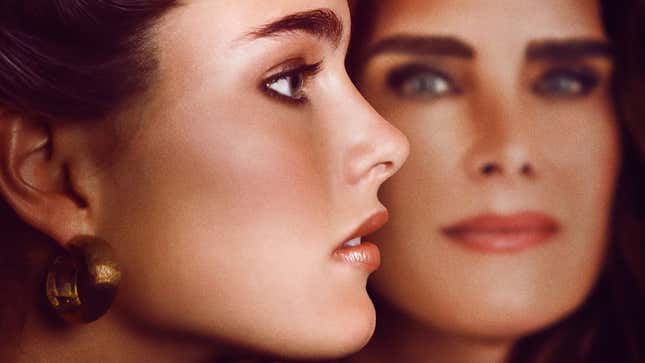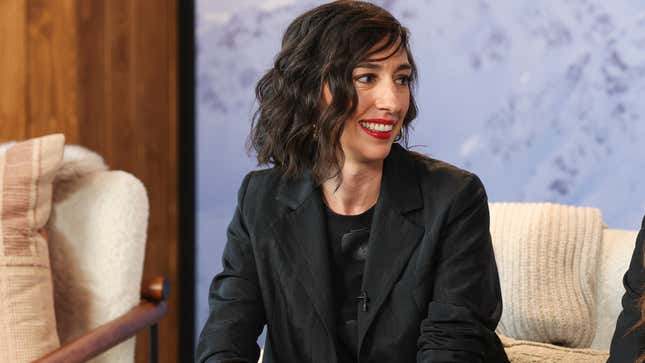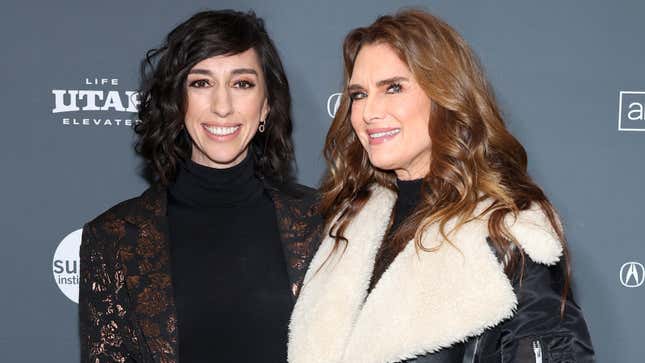How Brooke Shields’ Documentary Became More Than Her ‘I Was Exploited’ Story
Director Lana Wilson talks to Jezebel about carefully capturing the icon and incorporating her feedback in Pretty Baby: Brooke Shields on Hulu.
EntertainmentMovies

Ever since her documentary’s January premiere at the Sundance Film Festival, we’ve been in the midst of a Brooke Shieldsaissance. Shield has been on talk shows and the cover of People, and commanded headlines as the press eagerly welcomed a reassessment of an icon who was once labeled “America’s Newest Sexy Kid Star,” as the result of her salacious body of work. To hear the director of said doc tell it, Shields was eager for a proper reassessment herself.
Filmmaker Lana Wilson recently recalled to Jezebel her first meeting with Shields ahead of the filming of the two-part documentary about her life, Pretty Baby: Brooke Shields, which debuts Monday on Hulu. “The only concern she mentioned was that this wouldn’t be deep enough,” remembered Wilson, who previously directed the 2020 Taylor Swift documentary Miss Americana and co-directed the 2013 abortion documentary After Tiller.
Wilson left that meeting with a hard drive full of archival material that Shields’ momager Terri Shields had collected, and when the director went through it, what resonated with her most were the talk-show interviews conducted around the time of Louis Malle’s 1978 film Pretty Baby, in which Shields played a sex worker whose virginity is auctioned off. (Shields was 11 when she made the movie.) “I saw this little child, Brooke, being interrogated by hosts who were, on the one hand, praising her beauty and her sensuality, but on the other hand, criticizing her for being too sexual and for participating in what some people considered to be child pornography,” recalled Wilson. The material was ripe for an in-depth interrogation.
On the road to iconography, Shields would continue to appear in more media that fixated on her appearance and supposed sexuality, like 1980’s The Blue Lagoon, 1981’s Endless Love, and her notorious Calvin Klein jeans campaign. Meanwhile, as she says in the doc, “The irony was, I wasn’t in touch with any of my own sexuality.” Pretty Baby: Brooke Shields runs through all this and more, including her Princeton education, her ‘90s sitcom comeback, her relationship with tennis star Andre Agassi, and her current family life. Wilson told us that she filmed Shields’ interviews over four “very long days” in addition to the more verité footage that peppers the commentary of Shields, her friends and associates, and cultural experts. She also went into the experience of interviewing Shields and her own vision for the film. A condensed and edited transcript of our conversation is below.
JEZEBEL: I found the Pretty Baby section of your doc particularly fascinating, because you manage to contextualize the film in terms of both the Wild West nature of ‘70s cinema and the considerable controversy it riled up when it was released. Yes, it was a product of its time, but there was nonetheless considerable pushback. The section doesn’t end with an endorsement or a condemnation, but a nuanced examination.
LANA WILSON: Yeah. You know, it’s a really interesting and complicated film, and I wanted to present it in a kind of prismatic way, because I think there’s so many ways of looking at it. There is the context of 1970s cinema, and specifically European arthouse cinema. There’s the context of 1970s Hollywood cinema, and then there’s Brooke’s personal experience, and then there’s what we think looking at it now. I, at least, feel there’s no easy answer or take on the film. And that’s part of what makes it such an interesting thing to watch. Still, on the other hand, it’s a very uncomfortable film to watch.
-

-

-

-

-

-

-

-

-

-

-

-

-

-

-

-

-

-

-

-

-

-

-

-

-

-

-

-

-

-

-

-

-

-

-

-

-

-

-

-










































